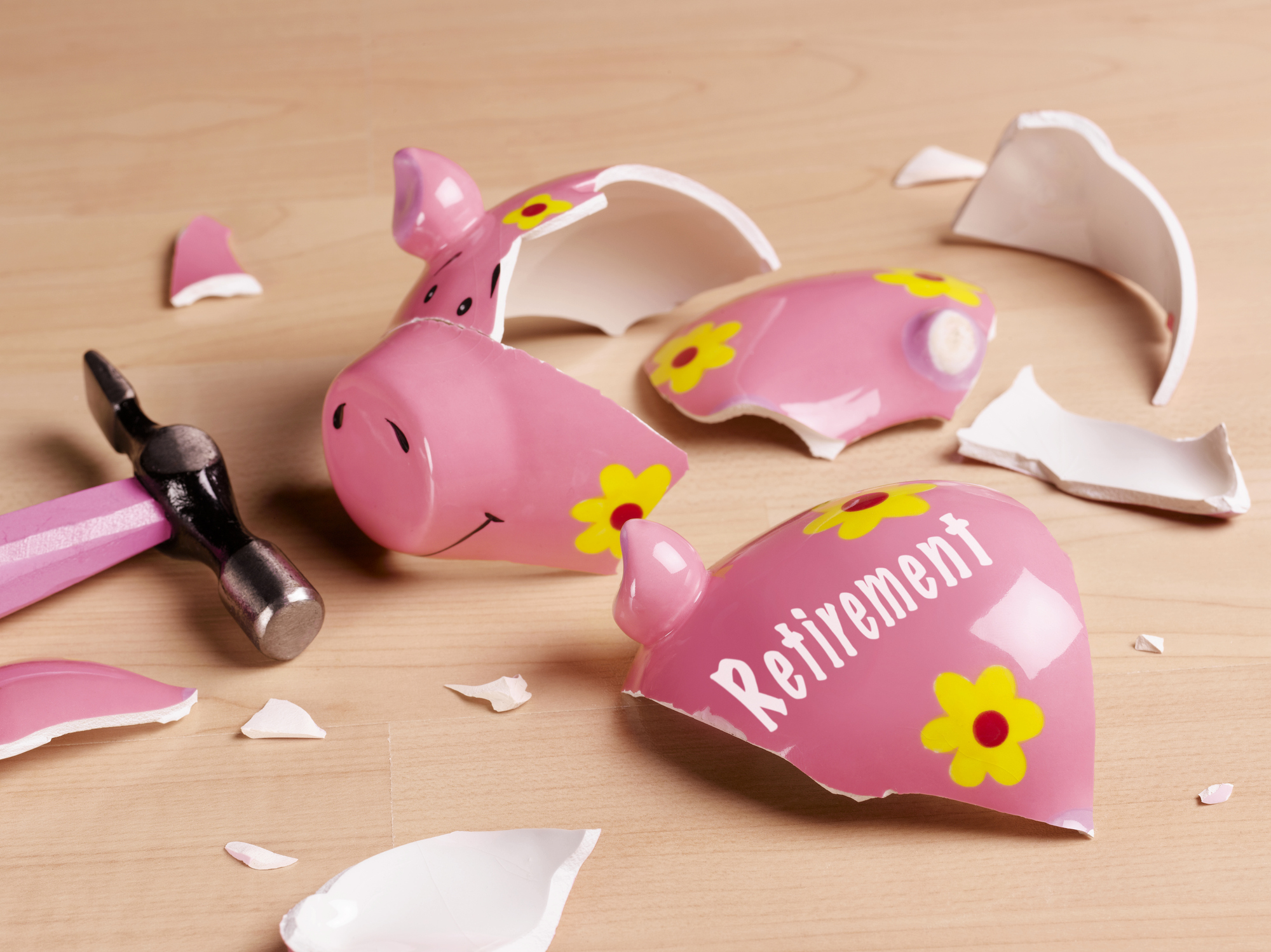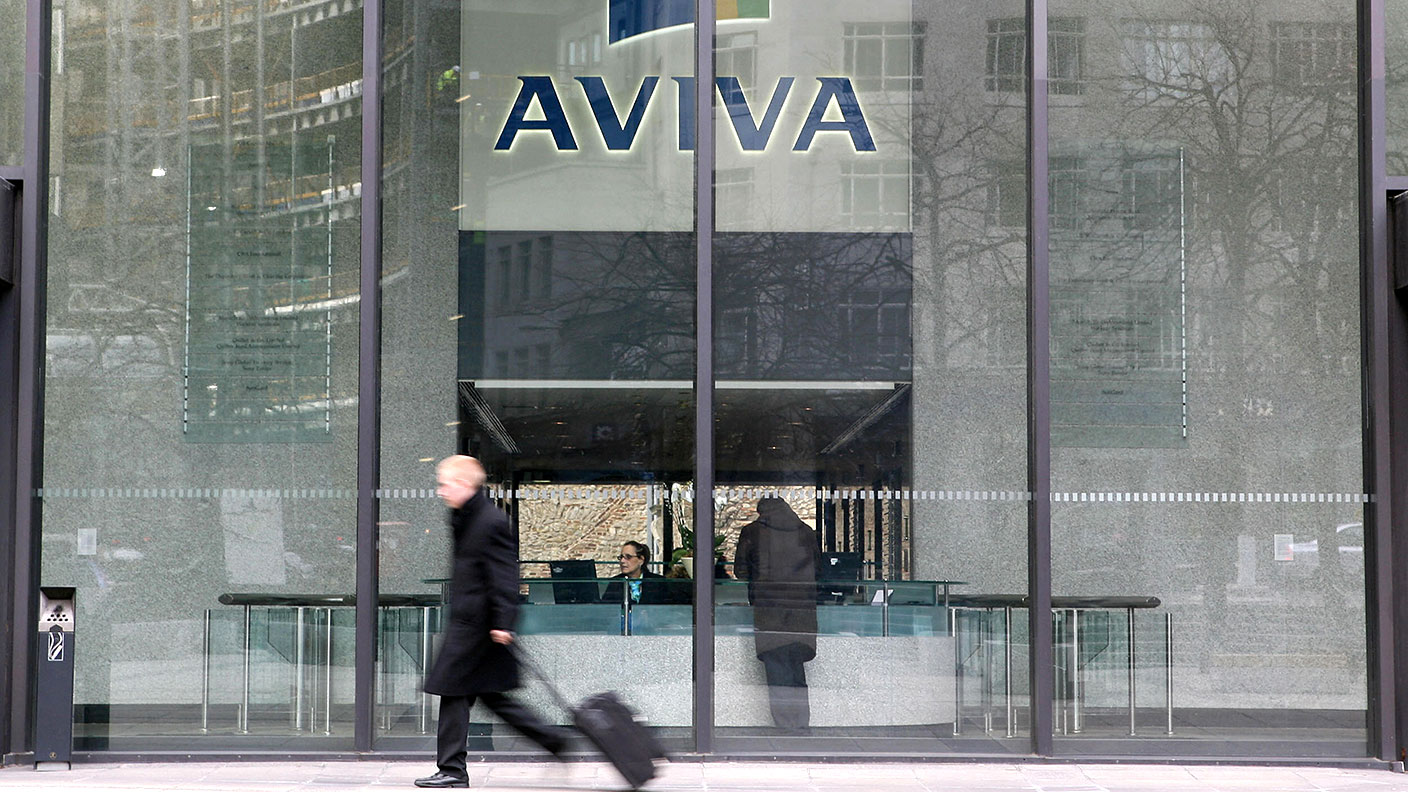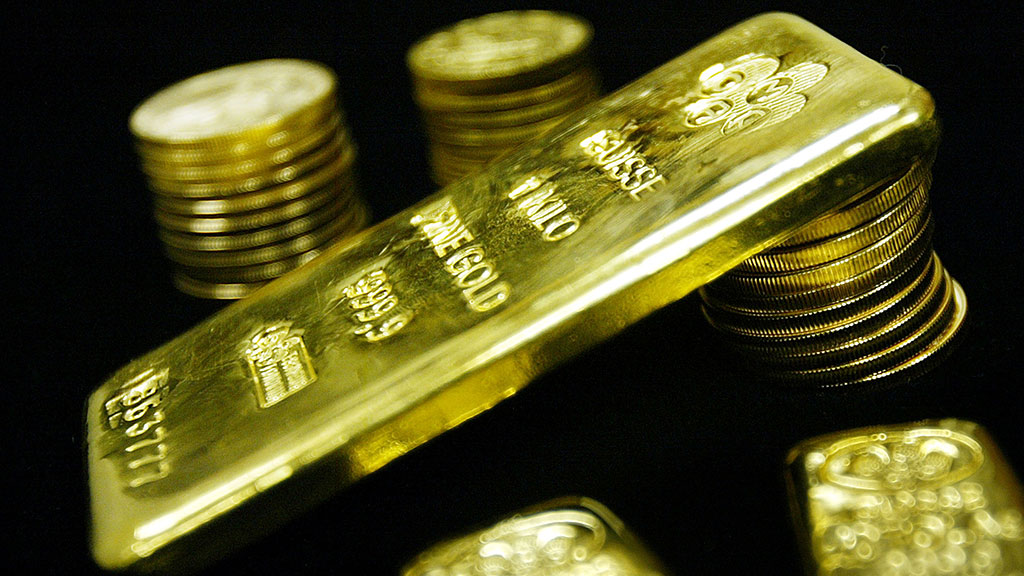Aviva’s jab at preference shares leaves scars
A backlash has forced Aviva to think again about scrapping its preference shares – but the damage is done, says John Stepek.

Get the latest financial news, insights and expert analysis from our award-winning MoneyWeek team, to help you understand what really matters when it comes to your finances.
You are now subscribed
Your newsletter sign-up was successful
Want to add more newsletters?

Twice daily
MoneyWeek
Get the latest financial news, insights and expert analysis from our award-winning MoneyWeek team, to help you understand what really matters when it comes to your finances.

Four times a week
Look After My Bills
Sign up to our free money-saving newsletter, filled with the latest news and expert advice to help you find the best tips and deals for managing your bills. Start saving today!

Last week, insurer Aviva ditched plans to cancel its £450m-worth of high-yielding preference shares ("prefs", as they're also known, pay a fixed dividend, which must be paid before any dividends can go to ordinary shareholders). Aviva had been looking to cancel the shares, using what amounted to a legal loophole, to save money. A subsequent backlash from investors, fund managers and MPs saw Aviva chief executive Mark Wilson finally issue a somewhat sheepish retraction to the London Stock Exchange on Friday morning, saying: "Our announcement today means that preference shareholders can rest secure in their holdings."
Problem solved? Not really. The most obvious immediate issue is this: the prefs (of which there are two issues under Aviva, and two under the General Accident name) pay an annual income of around 8% on their "par" value of 100p. As a result, prior to Aviva's initial warning, they traded at a huge premium, in the region of 170p per share. When Aviva threatened to cancel them at par value, the share price collapsed towards 100p. Now it has rebounded. However, in between times, some people many of them small, income-dependent investors, all of whom believed these shares were irredeemable have sold, probably at a big loss.
As a result the City watchdog, the Financial Conduct Authority (FCA), is looking at whether a "full market abuse" investigation is justified, notes Investment Week. FCA head Andrew Bailey said: "We are focusing on the treatment of those holders (and potentially now former holders) of the company's irredeemable preference shares that may have lost out financially." In other words, if you did sell out and lose money as a result of this mess, it's worth monitoring what happens next.
MoneyWeek
Subscribe to MoneyWeek today and get your first six magazine issues absolutely FREE

Sign up to Money Morning
Don't miss the latest investment and personal finances news, market analysis, plus money-saving tips with our free twice-daily newsletter
Don't miss the latest investment and personal finances news, market analysis, plus money-saving tips with our free twice-daily newsletter
As for the longer run, this hardly helps to improve trust in financial markets and financial companies in general. Jason Hollands of Tilney tells Portfolio Adviser: "This debacle really is a reminder of the importance of the principle of caveat emptor when investing directly in individual securities, especially in more esoteric areas." However, while we'd normally agree with this caution only invest in what you understand, and be aware of "long-tail" risks such as counter-party failure there are only so many scenarios any investor can reasonably be expected to contemplate. What part of "irredeemable" are we meant to see as optional?
Most preference shares in the wider sector are still below where they were prior to Aviva's initial announcement, even those of Ecclesiastical Insurance, which immediately (politely) condemned Aviva's move. Regardless of the outcome of the FCA's scrutiny, it's hard to see prefs ever fully recovering.
I wish I knew what the price/book ratio was, but I'm too embarrassed to ask
Book value is also known as equity, shareholders' funds, or net asset value (NAV). It is the value of all of a company's assets, less all of its liabilities (debts). The number can easily be found on the balance sheet in a company's annual report. Book value is sometimes used as an estimate of what a company would be worth if all of its assets were sold for their balance-sheet values. It's often used as a way to value companies such as banks, housebuilders, and insurers.
When you know the book value, you can get an idea of how cheap or expensive a share is by dividing the share price by the book value per share (hence the price/book, or p/b, value ratio). A p/b of below one means that technically speaking you are able to buy the company for less than its assets are worth on paper. In other words, if you could buy the whole company, you could sell everything it owned, and still make a profit.
One potential problem with this, of course, is that the book value of a company may not reflect what you would actually get were you to sell its assets. In particular, it may contain lots of "intangible assets", such as goodwill (which often relates to the value of a "brand"), which unlike a factory or a piece of land can be very tricky to measure objectively. These intangibles may in fact not be worth very much at all particularly not in a firesale.
So just as with the price/earnings ratio, an unusually low p/b number could indicate a company in trouble, rather than a potential bargain. By subtracting the intangible assets from a company's book value, you end up with a more conservative number, known as "tangible" book value, based on hard assets, such as land, buildings, machinery, stocks and cash. You can then divide this figure by the number of shares to get tangible book value per share. If you can buy a stock for a lot less than this figure (a relatively rare event), you may be getting a genuine bargain.
Get the latest financial news, insights and expert analysis from our award-winning MoneyWeek team, to help you understand what really matters when it comes to your finances.

-
 Should you buy an active ETF?
Should you buy an active ETF?ETFs are often mischaracterised as passive products, but they can be a convenient way to add active management to your portfolio
-
 Power up your pension before 5 April – easy ways to save before the tax year end
Power up your pension before 5 April – easy ways to save before the tax year endWith the end of the tax year looming, pension savers currently have a window to review and maximise what’s going into their retirement funds – we look at how
-
 What pension providers don't tell you about your retirement money
What pension providers don't tell you about your retirement moneyCheck the small print from your pension provider or risk losing thousands.
-
 Aviva: One for income investors to tuck away
Aviva: One for income investors to tuck awayTips Insurance giant Aviva is one of the highest yielding stocks in the FTSE 100 – and it’s cheap, too, making it a tempting target for income investors. Rupert Hargreaves delves into the numbers.
-
 Aviva has had a rethink on preference shares, but what now?
Aviva has had a rethink on preference shares, but what now?Features Aviva’s abandoned proposal to cancel £450m of preference shares has left a lot of people out of pocket. This isn’t over, says Merryn Somerset Webb. Not by a long chalk.
-
 Buy-to-letters set up shop
Buy-to-letters set up shopFeatures Buy-to-let landlords are turning to commercial property in their search for higher yields and greater stability. Sarah Moore explains.
-
Company in the news: Aviva
Features Aviva has made a play for life insurer Friends Life. Phil Oakley explains what investors should do next.
-
Aviva agrees Friends Life deal
Features Aviva, Britain’s second-biggest insurer, has reached a preliminary deal to buy smaller rival Friends Life.
-
 How to invest in a stocks and shares Isa
How to invest in a stocks and shares IsaVideos Ed Bowsher runs through the nuts and bolts of opening a stocks and shares Isa, and gives you some investment ideas to consider.